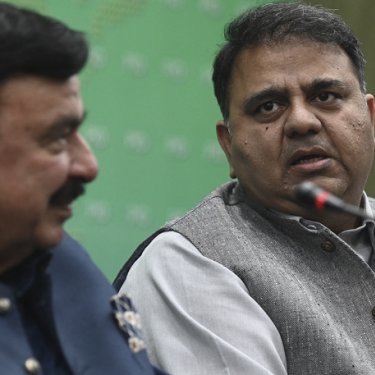Pakistan’s government wants to impose centralised censorship office

Reporters Without Borders (RSF) is appalled by the Pakistani government’s new draft media law which, if passed unchanged, would impose a media tribunal able to issue arbitrary decisions with no possibility of appeal by journalists or public.
RSF and its Pakistani partner, Freedom Network, are supporting the campaign that Pakistani media outlets and journalists have launched against the proposed legislation, which was first unveiled in June and would create a powerful new entity called the Pakistani Media Development Authority (PMDA).
Despite widespread outrage and civil society protests, the government is sticking to its plan to submit the bill to parliament in its current form. According to the information minister, who is leading the charge, the proposed law will replace five other laws that regulate the media. But legislative rationalisation is just an excuse for what will streamline and considerably strengthen the government’s ability to control journalistic content.
“We urge the Pakistani government to immediately abandon the PMDA bill, which, as it stands, carries within it the seeds of a centralised censorship office typical of the worst authoritarian regimes,” said Daniel Bastard, the head of RSF’s Asia-Pacific desk. “If adopted, it would reestablish martial law for the media, recalling the worst moments of military dictatorship that Pakistan has known. This bill’s provisions are utterly incompatible with a democratic system.”
- Extending censorship to online content
By introducing a “single-window” system for handling all disputes about journalistic content, the PMDA would enable the government to curb the freedom to provide news and information online, as it has already succeeded in doing, to a considerable extent, with the traditional media.
RSF already criticised similar proposed decrees twice in 2020, first in February and then in December. In Pakistan, the digital domain is seen as the only place left where information circulates outside government control.
- Broadening censorship’s range
Public criticism of Islam, the military and the justice system are currently penalised in Pakistan. This proposed law would also ban “undue criticism” of the president and parliamentarians, “demoralising the armed forces” and satirising religious officials.
The absence of any definition of these offences would give the PMDA’s members a free hand to interpret them in a completely arbitrary manner and thereby to trample on the guarantees for press freedom in Pakistan’s 1973 constitution.
- Imposing a strict “information permit” system
Every source of news and information, whether a national TV network or a blogger’s social media page or video channel, would be required by the PMDA bill to obtain a licence to publish or broadcast.
This licence, valid for five or 15 years, would be subject to annual revision. In practice, this would enable the PMDA’s members to silence any outlet or individual not to their liking by rescinding their licence.
- Creating a “media tribunal”
Under the proposed law, any media outlet, professional journalist or ordinary information provider violating the regulations could be sentenced by the PMDA to a fine of 25 million rupees (126,000 euros) or three years in prison.
- Giving the government absolute control
Under the bill, the PMDA’s members would be appointed by the various government ministers and officials concerned. In practice, this would enable the government to exercise strict control over what the PMDA could ban or permit.
- Lack of recourse
The bill provides for no credible appeal mechanism that would allow media outlets, journalists or members of the public falling within its scope to challenge its validity in a court of law. The PMDA bill thereby calls into question the normal relationship between executive and judicial power.
Pakistan is ranked 145th out of 180 countries in RSF's 2021 World Press Freedom Index.


